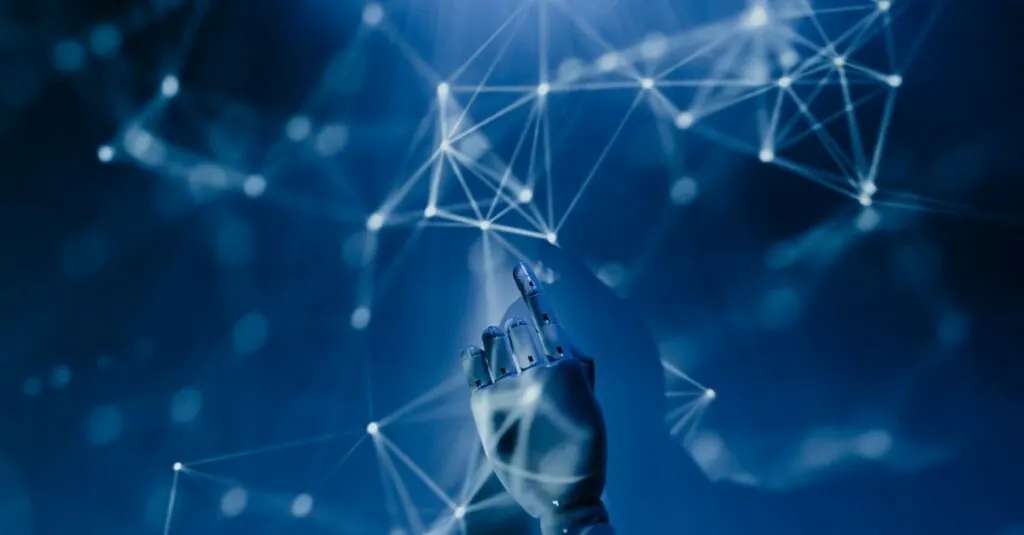In a world where robots are no longer just the stuff of sci-fi movies, FIRST Robotics is leading the charge into an exciting future. Imagine a place where high school students trade textbooks for toolkits and equations for engineering marvels. It’s where teamwork meets technology, and creativity knows no bounds.
Table of Contents
ToggleOverview of First Robotics
FIRST Robotics stands as a pioneering program focusing on engaging high school students in STEM fields through robotics. This initiative encourages collaboration among students as they tackle real-world problems. Participants build and program robots to compete in various challenges, fostering critical thinking and innovation.
Robotics teams typically consist of students, mentors, and educators. Each member plays a vital role in the design and development process. Teams learn to strategize effectively, often refining their approach as they navigate technical obstacles and time constraints.
Competitions structured by FIRST provide students the opportunity to showcase their skills on a grand stage. They experience the excitement of presenting their work while garnering support and feedback from peers. Such experiences enhance not only technical abilities but also communication and leadership skills.
FIRST Robotics promotes inclusivity, welcoming students from diverse backgrounds. Various resources, including workshops and online courses, exist to support participants at every skill level. As students engage in hands-on robotics endeavors, they develop a passion for science and technology that may lead to future career paths.
Additionally, partnerships with educational institutions and corporations strengthen the learning experience. These collaborations yield mentorship opportunities and potential career insights, broadening students’ perspectives on possible future endeavors. Through FIRST Robotics, students gain a competitive edge in our increasingly technology-driven world.
History of First Robotics
FIRST Robotics, founded in 1989, has significantly influenced STEM education. The organization aims to inspire young minds through hands-on robotics experiences, blending fun and learning.
Founding and Growth
FIRST, or For Inspiration and Recognition of Science and Technology, emerged from the vision of inventor Dean Kamen. Kamen envisioned a program that encourages students to engage in engineering and technology. It started as a small competition in New Hampshire, attracting limited participants. Over the decades, the program expanded, reaching thousands of schools across the globe. The introduction of various competitions, such as FIRST Robotics Competition (FRC) and FIRST Tech Challenge (FTC), broadened its appeal. This growth reflects a strong commitment to fostering educational opportunities in robotics.
Milestones in Competition
FIRST Robotics has marked several key milestones in its competitive landscape. The inaugural FIRST Robotics Competition took place in 1992, featuring an impressive 28 teams. In 2001, the program saw its first international expansion, allowing teams from other countries to compete. The introduction of the Einstein Field in 2015 showcased the top teams in a championship setting. Since then, thousands of teams participate annually, making the competition a global phenomenon. The implementation of new challenges each season keeps students engaged, enhancing problem-solving and teamwork skills.
Impact on Education
FIRST Robotics significantly enhances the educational experience for high school students by emphasizing hands-on learning and collaboration. Engaging students in the realms of science, technology, engineering, and mathematics (STEM) leads to broader interest and understanding.
STEM Engagement
FIRST Robotics captures student interest in STEM fields. Students participate in building and programming robots, which enhances their practical skills. Robotics competitions create opportunities for applying classroom knowledge to real-world scenarios. Engaging in tasks such as problem-solving and critical analysis fosters a deeper understanding of scientific concepts. Challenges presented during competitions encourage students to innovate and experiment, solidifying their learning. The program actively recruits students from various backgrounds, creating an inclusive environment that promotes equity in STEM education.
Skill Development
FIRST Robotics develops a diverse skill set in participants. Students enhance technical abilities through hands-on projects, learning programming languages and engineering principles. Effective teamwork becomes essential as they navigate challenges with their peers. Leadership skills grow as students assume various roles within their robotics teams. Communication improves during presentations and collaborative planning sessions, preparing them for future careers. Time management is critical, as teams must strategize to meet competition deadlines. These experiences equip students with practical skills and confidence that are valuable in higher education and beyond.
Competitions and Events
FIRST Robotics offers a dynamic series of competitions that challenge students to apply their skills in real-world scenarios. Engaging events not only promote teamwork and creativity but also foster a spirit of friendly competition among teams.
Structure of the Competitions
Competitions are structured to include several stages, such as regional tournaments, championship events, and playoffs. Students design, build, and program robots to compete in specific challenges, requiring strategic planning and problem-solving. Rules vary by event, ensuring students remain adaptable as they tackle unique tasks each season. Teams face off in match formats that emphasize collaboration and innovation, making the experience both educational and exciting. Judges assess robot performance, design, and team presentations, providing valuable feedback for continuous improvement.
Notable Achievements
Numerous achievements highlight the impact and success of FIRST Robotics participants. Teams often achieve recognition for their exceptional designs and innovative solutions, leading to awards in various categories. Noteworthy accomplishments include securing sponsorships from major corporations, facilitating funding for schools and robotics programs. Students frequently progress to higher education and careers in STEM fields, showcasing the program’s effectiveness in preparing them for future challenges. Several alumni of FIRST Robotics have become leaders in technology and engineering sectors, exemplifying the program’s long-term benefits.
Community and Networking
FIRST Robotics fosters a robust community for participants, promoting collaboration and networking opportunities.
Support Systems for Teams
Support systems are crucial for team success. Mentorship programs connect experienced professionals with students, providing guidance and insights into robotics and STEM fields. Resources include workshops, online courses, and access to tools and materials, ensuring teams remain competitive. Local and national competitions offer platforms for teams to showcase skills, attracting sponsorships and partnerships that further enhance team capabilities. Networking at events encourages knowledge sharing and camaraderie among participants, creating a supportive environment that nurtures talent and innovation.
Alumni Success Stories
Alumni of FIRST Robotics achieve remarkable success across various fields. Graduates frequently secure prestigious positions in technology, engineering, and other STEM-related industries. Many have continued their education at top universities, where they leverage their robotics experience to excel academically. Engaging in FIRST Robotics often leads to substantial networking opportunities, enabling alumni to form valuable connections within their industries. Success stories highlight the program’s impact, showcasing individuals who have become leaders and innovators, demonstrating the long-term benefits of participation in FIRST Robotics.
Future of First Robotics
FIRST Robotics continues evolving with advancing technology and educational methodologies. Emerging trends signal a commitment to integrating real-world applications into robotics.
Trends and Innovations
Artificial intelligence features prominently in recent robotics designs, enhancing automation and decision-making processes. Advanced sensors improve robots’ capabilities, enabling more complex tasks during competitions. Virtual and augmented reality are also beginning to play a role, providing immersive training experiences for participants. Sustainability initiatives gain traction as teams explore eco-friendly materials and energy sources for their robots. Incorporating data analytics helps teams assess performance and refine strategies, driving innovation within the program. Collaborations with tech companies bolster access to cutting-edge tools and knowledge, ensuring students remain competitive.
Challenges Ahead
Despite significant progress, FIRST Robotics faces obstacles that may impact growth. Limited funding often restricts resources for teams, affecting their ability to compete effectively. Recruitment and retention of participants can be inconsistent, especially in underserved communities where access to robotics education remains limited. As technology advances, keeping curriculum relevant poses a challenge for educators and mentors within the program. Additionally, maintaining engagement in a fast-paced digital world requires ongoing adaptation to new trends. Balancing competition with educational values demands continued focus to ensure that students benefit effectively from their experiences.
FIRST Robotics represents a significant shift in how education engages students in STEM fields. Through hands-on experiences and collaborative challenges, participants not only acquire technical skills but also develop essential soft skills like communication and leadership. The program’s inclusive nature fosters a diverse community, allowing students from all backgrounds to thrive.
As FIRST Robotics continues to innovate and adapt to technological advancements, it remains committed to inspiring the next generation of engineers and scientists. The success stories of alumni highlight the lasting impact of this program, paving the way for future leaders in technology and engineering. With ongoing support and resources, FIRST Robotics is set to shape the future of education and empower students for years to come.





